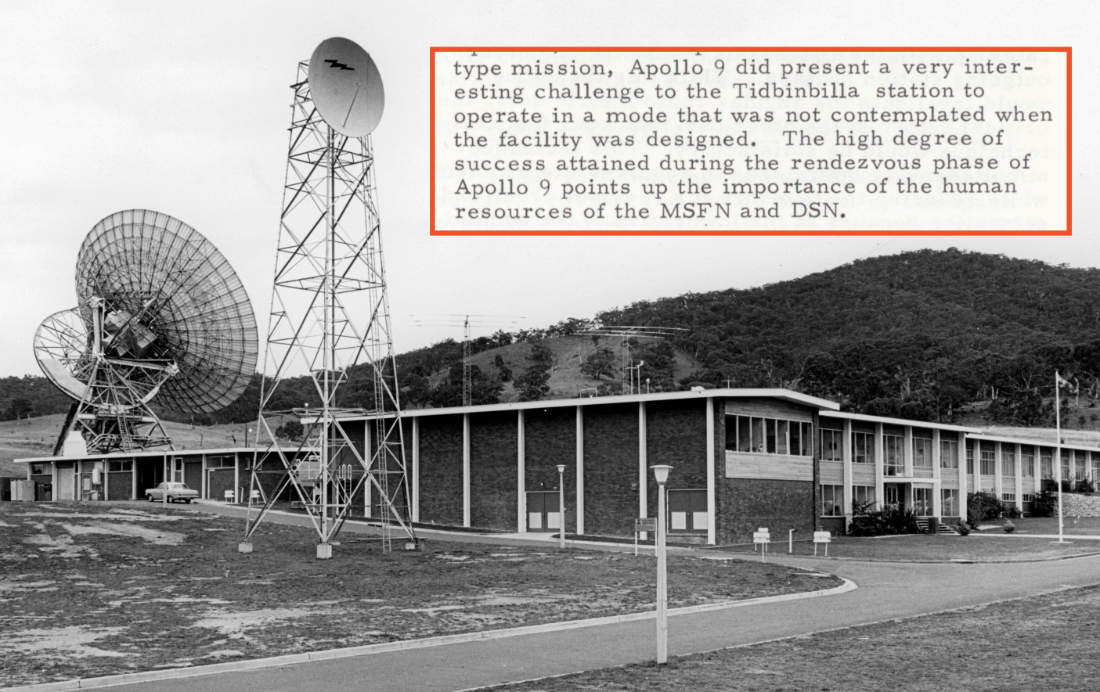For Apollos 9 to 17, the Deep Space Network supported the Manned Space Flight Network through the Wing stations to the 26 metre (85 foot) prime stations.
Technical Memorandum 33-452, Volume II (May 1, 1971) from the Jet Propulsion Laboratory, entitled Deep Space Network Support of the Manned Space Flight Network for Apollo, 1969 – 1970, provides details.
A PDF file of the section on Apollo 9 is below.
DSS-42 Tidbinbilla played a key role in several Apollo 9 passes. While the Wing at Tidbinbilla would not normally be involved in Earth orbit phases of a mission, the requirement to test the Lunar Module in Earth orbit meant that an additional antenna was necessary. The difficulty of tracking an Earth-orbit spacecraft, with the corresponding anetnna high angular rate, meant that an innovative solution was needed.
The Technical Memorandum concludes the Apollo 9 section by saying,
“The Apollo 9 mission was completely successful in every respect, thereby paving the way for further evaluation of the LM in orbit about the moon on the Apollo 10 mission.
While the DSN/MSFN wing support requirements for Apollo 9 were considerably less than those for Apollo 8, because Apollo 9 was an earth-orbital type mission, Apollo 9 did present a very interesting challenge to the Tidbinbilla station to operate in a mode that was not contemplated when the facility was designed. The high degree of success attained during the rendezvous phase of Apollo 9 points up the importance of the human resources of the MSFN and DSN.”
See below for the full text.

